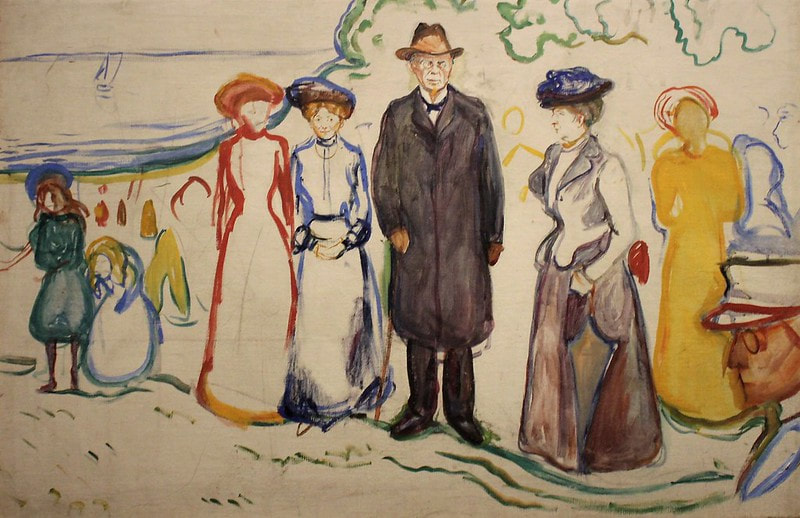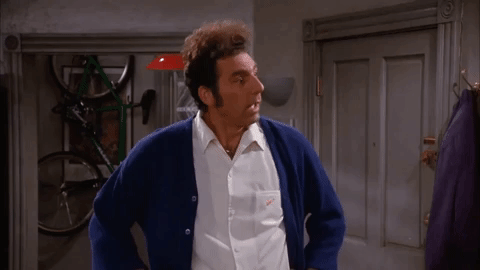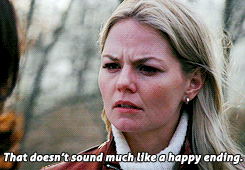|
The person about to take center stage needs no introduction. Everyone reading this is thoroughly acquainted with him. His qualifications hail from years of hard-earned experience. When he speaks, we lend fealty on bended knee. Below are some of his favorite lines -- -I will never get better. I’ll live with this condition my whole life. -If I start this (blog) (podcast) (youtube channel), no one will tune in. -I will never find love again. -This new venture will fail. I’m destined to struggle and be poor. -I can’t play full out at work and be present for the kids and be in a committed relationship. It’s too much. -I’m not qualified enough for that position. -That person is too attractive to want to be with me. I’m not _______ enough. Do you recognize this voice? It’s our inner critic. I’m talking about the judgmental conga line going on in our head. The things we tell ourselves day in and day out. I often wonder what it would be like if for one day a year, everyone’s inner monologue was audible for all to hear. The self-judge exposed. I imagine the sky would grow dark under the weight of self-oppression. If someone talked to a friend of ours the way we regularly talk to ourselves, we would slap them across the face. Well, maybe not, but we would for sure get angry and stick up for them. Why don’t we stick up for ourselves against this dictatorial, out-of-control, inner tyrant? And it’s worse than negative self-talk: it’s lies. We tell ourselves lies over and over again. Lies about our value, or worth, our destiny. Thoughts are things. Thoughts lead to feelings, which lead to action, which lead to results. Any result in our life can be traced back to a thought. If the life we are living right now is grim, it is because it started with a thought that this is what we deserved. Our future is as bright as the truths we tell ourselves. Or as dark as the lies we believe. It’s that simple. Our thoughts create our reality. The Bible says that Satan is the author of lies. Just think about what’s implied in that claim: lies come from the pit of hell. By accepting a lie, we bring hell into our own mind. A welcome guest. Pull up a seat, we say. Agreeing to a lie literally ushers in hell on earth. And yes, I used ‘agree’ intentionally. Lying is a cooperative act. We choose to believe a lie. It has no power to devour if we shrug our shoulders and walk away from it. It’s when we accept the lie, internalize it, and give it roots that it goes full scorched earth on us. Aside from religious implications, agreeing to a lie sure feels like hell. When we believe statements like the ones that opened this article, we feel small, defeated, lonely, and listless. Directionless is our path and futility is our song. If it feels so terrible, why do we do it? Why do we agree to lies? Because we are thirsty for something. I once had a friend who would talk bad about pretty much everyone who wasn’t in the room. I was young and naive and thirsty for validation from such a critical source. But why, you ask. Because in my mind, if a critical person approved of me and confided in me, then I was something special (twisted, I know). The super selective, critical judge gave me her stamp of approval. I believed the lie that she wasn’t talking about me with others. I believed it because I wanted to be special. It all came crashing down when I overheard a conversation in which she was trash-talking me to someone else. The sting of betrayal hurt less than the sting of shame. I now saw what was probably so obvious to any outsider looking in: if she talks about other people, she’s probably talking about me too. How could I be so blind? Because I wanted something from her. I wanted validation. Blindness is a consequence of thirst. If we don’t want to be deceived, we need to identify the object of our thirst. Is it status? Intimacy? Belonging? Significance? If you can pin-point what it is you crave, and find a way to fulfill it yourself, you’ll be impervious to the lies of others. If you are not thirsty it will be hard to agree to a lie. You will have nothing to gain by doing so. This is critical to freeing ourselves from lies — lies from others and the lies we tell ourselves. Speaking of, what about the lies we tell ourselves. How on earth do we become impervious to those? We need to acknowledge what our mammalian, thousand year-old brain, inherited from generations past, longs for. It craves self-preservation, comfort, and protection. It enshrines the status quo because, well, it’s kept us alive thus far, why change. We don’t want liberty, we want to be looked after. We should want freedom, but instead we want ease. Our brain will always try to self-sabotage when we are starting something new, taking a risk, or entering a new phase. Even if it is the best thing for us.Let me repeat: our brain will self-sabotage, even if what we are trying to do is what’s best for us. It’s why a man freaks out and contemplates leaving a woman the moment he can actually see a future with her. It’s why we quit right before we’re about to get started. Our brain will tell us lies not because it thinks it’s the truth. Or brain doesn’t care if it is the truth or not. It just cares about our self-preservation. Our brain will tell us what we need to hear to maintain business as usual, even if that means our misery. The misery you know is better than the misery you don’t know, it says. We need to understand that our brain works this way. We don’t need to excoriate it for doing so. Instead, we need to accept this as part of our hard-wiring, and get creative and intentional in circumventing it. When a thought surfaces that pertains to ourselves, we need to sift it through the sieve of these questions:
If it’s the latter, dwell on it, let it fill you up. Wind in your sails. If it’s the former, say: ‘Thank you for sharing. That is not true, and I’m not picking it up. Actually, this is the truth about me: ____________.” Remove the lie, insert the truth, and carry on with your day. If it helps, keep a small journal with you and write the thoughts down as they surface throughout the day. Then, correct the self-limiting lies by stating the truth. Let’s return to our opening lines to see how this would play out. -Actually, this is a temporary season where I’m experiencing physical challenges, and I am confident I will be well soon. -Actually, my thoughts are worthwhile and people will line up to read/hear them. -Actually, I have so much to offer a partner and I am worthy of love. Anyone would be lucky to be with me. -Actually, I create wealth and success by the value I add to others’ lives. -Actually, my capacity to handle & receive good things is limitless. -Actually, I am over-qualified for the position and the company would be lucky to have a gifted, driven, effective person like me. -Actually, I am enough. We need to start getting sassy with the lies we tell ourselves. We need to start talking back. If we make this a habit, over time, our mind will change. Over time, we will believe more truths than lies. Our world will get lighter; our prospects brighter. Good opportunities will seemingly come from nowhere, surprisingly pliant to our wishes. We will have freed ourselves from the dank, dark prison of self-criticism & self-deception. Once outside, the sunlight brings healing to our body and exuberance to our face. The air is crisp and our future is bright. See, we get the behavior we accept. Our mind is no different.
8 Comments
And deep down you know it. Most people think that our purpose here on this earth is to live for others. To give, to serve. It’s one of those platitudes that we’ve just come to accept. And on the surface it sounds good. Who wouldn’t want to help others? Scrooge, maybe. No one wants to be Scrooge. But there’s a problem. ‘Live for others’ is a lie. It’s an agreement we make in our early years. We learn that to be accepted, we must contort ourself to the wishes of others. To be recognized and celebrated, we must follow the rules. Rules are great and all, don’t get me wrong. I’m a big fan of rules. But when following the rules becomes our validation, we have a problem. Here’s how it happens. We learn that if we give Timmy our shovel, he will give us the pail and the ‘big people’ let us play longer in the sandbox. We learn to sit quietly so the teacher will like us and let us go to recess. Yes, the skills of sharing and authority are important, but I think we extract the wrong lesson. We learn not the value of sharing and authority, rather, we learn the value of living for others. We’re not taught that doing these things will advance our own life, rather we’re told to do it because ‘it’s the right thing to do.’ We have to be nice to others. And just like that, we begin to link successful action on our part to how other people perceive and receive it. It’s a subtle shift, but it creates a chasm so deep from which most people never extricate. I’m not your personal genie. I’m not going to live my life as a silver platter to your desires. You might think “that’s ludicrous, no one thinks that way.” Oh, yea? Well they live that way. I’ll prove it. The majority of people base their decisions on how others will respond. Example: you see an attractive person across the coffee shop. Do you walk up to them and say hi? Most people wouldn’t. I might look stupid. Or The other person will think I’m weird. Or I’ll come across as awkward to them. Or They might reject me. Notice how every reason deals with the other person’s perception of you. If you were living your life for you and not for others, your thought process would be different, something along the lines of Wow, that person could be my future partner & hot damn are they fine. It’s a huge difference. When faced with a choice, our conditioned thought process (unless interrupted) is to internally sift through the following questions before deciding what to do:
So we edit our lives. We edit our dreams. So anxious to offend, we live our lives on eggshells. So fearful of looking foolish, we live our lives in the safe zone. Who ever did anything worthwhile from that zip code? Such a person is a slave to the opinions of others. And here’s the problem. No one wants to be a slave. We want be a warrior. We want to follow a warrior. Someone who is on their own mission and going after it no matter what people think. That is the type of person to whom we’re attracted. Think of every person you truly admire — public figures, influencers, writers. They live for themselves. Period.
Our purpose is not to live for others. It is to live for ourselves. It comes down to choosing our path and living it from a place of authenticity. But what about Mother Teresa? Yes, what about her. If she cared about the opinions of others, she never would have set foot in Calcutta’s dirtiest and poorest streets. Her conviction to her work was deeply personal. It’s what set her heart on fire. Notice, hers. Discovering your purpose is a very intimate and individual act — between you and your Creator. It doesn’t involve other people. It happens in the quiet recesses of the soul. That purpose will include others — don’t get me wrong. We are wired for connection, and nothing will give us greater satisfaction than using our gifts to enrich the lives of others. But it doesn’t start there. It doesn’t start with people. It starts with you. You and your Author. You and your purpose. Personal. Individual. Self-actualizing. And that’s the irony. If your focus is all on others — what you can give them, how you can please them, how you can gain their applause — you’ll never be satisfied. If the focus is on you and fulfilling your mission day by day, THEN and only then can you actually influence the lives of others. It’s precisely when we don’t *need* others that we make the most impact. See, ‘live for others’ has the aftertaste of sincerity, but not the substance. That’s the thing about a lie — it contains a hint of truth, otherwise it wouldn’t be so attractive. If we live for others (their adulation and applause) we help no one. If we live for ourselves and our mission, we operate from a place of strength and conviction, the only soil that can change the world. But change your own world first. And then gosh, there’s no telling what you will go on to do. 🔥🔥🔥 A few months back, I wrote an article that got a ton of attention — Stop Giving Unsolicited Advice — where I dove into the psychology of why we give advice and what to do instead. There was one sentence in it that was highlighted a bazillion times on Medium (exaggeration added) and it was this: people don’t want to be fixed, they want to be known.
I thought that was one of the least impressive lines in the article. Writing is humbling isn’t it? It shows you how wrong you can be and where the real interest lies. Since then, I’ve spent some time thinking about why that line struck a chord with so many people. It speaks to what we really want out of any relationship. We want to be known and loved anyways. What does this actually look like? 1. We Want Our Full Self To Be Accepted. For so much of our lives, we trade authenticity for attachment. We don’t show up fully ourselves for fear that those in our life will leave. We’d rather have the relationship than take up space in it. Then they leave anyways. We learn from the lesson and choose to live authentically going forward. I will be me — the right people will stay, the wrong people will leave. From that point on we’re searching for those who will embrace all that we are. We want to be able to dance and not get ridiculed. We want to be messy and goofy and not at all put together, and for it to be celebrated. We want to bear our scars without judgment. We don’t want to be fixed. We want our realselves to be accepted — not the dress up version of ourselves we usually present to the world. This is me. This is really me, no editing. And we want the other person to say yes, it’s marvelous, and I wouldn’t change a thing. 2. We Want A Witness To Our Life. I’m not a big social media person. I’ve had bouts where I’ll try it for a few months, then deactivate. What’s interesting is what happens right after. Suddenly, I’ll be out and about and something noteworthy happens to me. I instantly want to document it and share it with the world. Then I get share withdrawal — oh wait! I’m not on social media anymore. Social media is so addictive because it gives the illusion of people bearing witness to our life. We feel like our life is seen, and therefore, validated in some way. But it’s faux validation. In real witnessing, the other person also shares something about their life in response, it’s a give and take. Social media can often be one way. And it’s curated — people only bear witness to what we want them to see. What we really want out of relationships is a partner for the road. We want someone to walk through this life with us, through the hills and valleys, and to bear witness to the journey. It’s why we make vacations with other people. Experiences are not meaningful unless shared. We want to be seen. Thoroughly seen. For most of my life I’ve flown below the radar. The shy girl who’s stayed on the margins. The type that grows accustomed to people not noticing. I remember one moment of really putting myself out there, and not receiving much positive response, and it really bothered me. My boyfriend at the time asked me ‘What exactly are you feeling right now?’ I took a moment, thought about it, and said ‘Unseen. I feel ignored and unseen.’ ‘I see you, MaryBeth. I see all of you and it’s perfect.’ That statement made all of the hurt go away. By actually looking at someone, and seeing them in their moment of pain, we have the power to be a master healer. This is what we all really want: someone who is present, focused, grounded, attentive. A witness for the journey. 3. We Want Someone To Grow With Us. We want to be challenged. We want someone who calls us on our sh*t. Men want a woman who speaks to the king in him. Women want a man who encourages her to step into her flourishing. Mature people want an equal — mentally, emotionally, physically, financially. We don’t want a project, we want a partner. We want someone to inspire us to be the best version of us. 4. We Want To Compose A Symphony. When two separately incredible people come together it can be magical. We want to build a life with someone, where both people are contributing. And together? It becomes a symphony. I add some notes here, you add the harmony, then there are verses, then the coda. Then we add the strings section, and the crescendo. Our symphony is riveting and unlike anyone else’s. There are comfortable parts, like the chorus, and unique parts like the bridge. But we’ve composed it together, and that’s what makes it beautiful. 5. We Want To Be A Hiding Place. We want the embrace. We want to be held. When I think about relationships, a song comes to mind — Lay My Head Down by the Indigo Girls. “I want to lay my head down on you Because you’re the only solid thing in this room.” I want to be the recipient of that. All your little disappointments and fears? I want to bottle them up and keep them safe. These precious jars that contain your struggles, your scars, your insecurities — I will handle them with care. I will not traffic them to others, not for any price. I want to be your only solid thing in this room. And we want it reciprocated. I want you to hold space for me as I spread my wings and flourish, as I learn what it means to surrender. I want you to be my hiding place. I want you to be my only solid thing in this room. This is what we want. This is what we all want. |
Previous PostsArchives by Month
December 2020
Categories |
Site powered by Weebly. Managed by Namecheap






 RSS Feed
RSS Feed